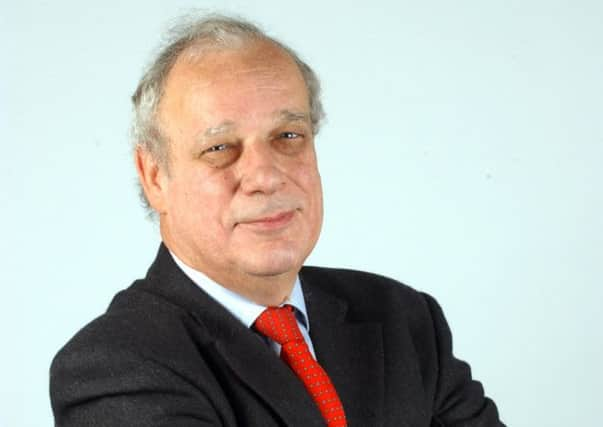Bill Jamieson: Great Scottish trust needs defence


Family trusts ambitious for tranquillity and a quiet life hold it close.
No lawyer ever got fired holding shares in Alliance. But across the investment cognoscenti, its large discount to net assets and lacklustre performance have rendered it friendless. It has attracted several vainglorious and foredoomed boardroom parties seeking to close the discount and improve performance. These have included Personal Assets Trust and Laxey Partners. They reckoned without the monolithic inertia of Alliance shareholders. Disturbance and dissension upsets them, especially from transient agitators and Johnny-Come-Latelys from faraway places. That includes Edinburgh.
Advertisement
Hide AdAdvertisement
Hide AdNow US hedge fund Elliott Capital has snapped up some ten per cent of Alliance’s shares. A swirling mist of expectancy once more descends on the granite monolith. Might another battle break out, with Elliott Capital seeking a shareholder vote or a seat on the board?
For all its seeming resistance to reform, Alliance has doggedly sought to effect change in both performance and perception in recent years. Its front entrance has been like the revolving doors at Jenners, with 13 bewildering arrivals and departures from the investment management team since 2006.
It has pursued share buy-back programmes to narrow the discount. It has maintained a 46-year record of rising dividends. Its struggling Alliance Trust Savings platform now has £4.1 billion assets under management, 74,000 customer accounts and is – at last – in profit of sorts.
And its annual report now extends to a daunting 92 pages, with a profusion of multi-coloured graphs, diagrams, tables and pie charts – all the right figures, though, as some critics might say, not necessarily in the right order.
In investment manager Ilario Di Bon it has a reforming head of global equities. Recruited by chief executive Katherine Garrett-Cox in 2011 from Fidelity, he has embarked on a radically new approach, hiring a global investment team in London. A portfolio of more than 200 holdings has been pruned back to fewer than 100. A six-strong team works on sector specialisms such as financials and information technology.
Yet for all these efforts, Alliance has little to show in performance terms. It lags the global trust sector average over periods of one and five years. The discount still yawns at 10.8 per cent. And the net dividend yield – propped up by holdings in bonds – is just 1.58 per cent: hardly a compelling proposition for investors looking for a competitive mainstream global fund. To describe Alliance as comatose would be unfair. But does its performance have a pulse?
And all the bustle of reform has come at a cost. Boardroom remuneration and bonus payments continue to show a disconnect between reward and performance. Staff costs in 2012 rose 13 per cent to £8.7m. Since 2007, administrative costs have risen 85 per cent to £18.7m. Over that period, the trust’s expenses ratio has almost doubled, from 0.39 per cent of assets to 0.76 per cent.
Now, it would be wrong to judge the changes recently introduced by Di Bon on as short a timeframe as two years. It takes time for reforms to a trust as large as this to work their way through. But analysts have been making allowances for Alliance on this argument for years – and are not now minded to cut the trust any more slack.
Advertisement
Hide AdAdvertisement
Hide AdInvestors, meanwhile, look to be voting with their feet, with the rival Scottish Mortgage Trust, helped by its growing retail investor popularity, now overtaking Alliance as the UK’s biggest investment trusts by assets.